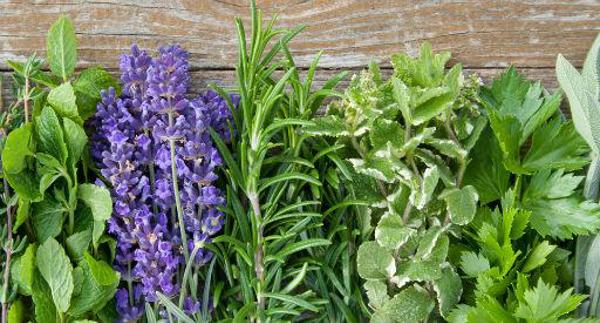
Fragrant herbs will add a flavour punch to any meal, particularly when they are freshly snipped from your own garden. For novice gardeners a few herbs grown in pots can be the perfect introduction to the joys of ‘growing your own’. For those more experienced gardeners among us, get inspired in the kitchen and try growing different herbs that suit your culinary style.
If you’re planning on heading away over summer, don’t let that deter you – plant a portable herb garden in pots and containers and take them away with you.
Whether you are looking for fresh mint to add to summer mojitos or fragrant basil to perfect your pesto, follow our simple 3 step Herb Growing Guide and you’ll be on the way to harvesting a bumper crop of herbs this season.
Prepare
- Herbs will prosper in garden beds, pots and containers.
- Choose a spot outside that is close to your kitchen, or put pots on a sunny windowsill inside, for easy access.
- A good foundation is the key to success in your herb garden - Tui Herb Mix is specially blended to provide ideal growing conditions for your herbs. It is free draining, rich in nitrogen to promote green, leafy growth and continuous harvesting. Use in garden beds, pots and containers.
Plant
- Over summer, herbs that will do well include: basil, mint, rosemary, thyme, oregano, chives, parsley, rosemary, coriander, dill, chervil, rocket and borage. If you want to try something different, plant a combination of Vietnamese mint, Thai basil and lemongrass - all wonderful additions to Asian cooking.
- Don’t be shy when planting herbs as they quite like close neighbours, and you can always plant herbs in between other plants as they make great space fillers and companion plants.
- Plant sage around celery to help keep aphids away. Hyssop deters white butterfly from brassicas like cabbages and Brussels sprouts.
- Basil improves flavour of tomatoes.
- Some herbs tend to take over the garden once planted like mint, borage and lemongrass. To avoid, plant these varieties in pots rather than garden beds.
- When planting, dig a hole twice the width of the root ball of the plant in the garden or part fill your pot, place your herb plant in the hole and fill in with Tui Herb Mix. Water your herbs well before and after planting, and use Tui Organic Seaweed Plant Tonic to help prevent transplant shock.
Nourish
- Herbs use nutrients from the soil as they grow, so replenishing the nutrients ensures you’ll get the most from your crop - we recommend using Tui NovaTec Premium fertiliser.
- Remember the smaller the pot the more quickly it will dry out so take care to keep it well watered. Well watered, well nourished herbs will have a better chance of keeping healthy and producing well.
- Once established, herbs will benefit from a layer of Tui Mulch & Feed, to help conserve soil moisture, provide nutrients and help keep the area weed free.
Tui Tips:
- Over summer some herbs like coriander, parsley and basil are prone to go to seed. To avoid, water your herbs consistently, and remove parts of the plant that go to seed. If your herbs do go to seed there is an upside - the flowers are great for beneficial insects like bees, and if you let them fully dry out you can collect the seeds for next season!
- Pick herbs fresh and add to your salad or stir-fry.
- If you have an excess of herbs, chop them up and freeze them in ice cubes – these can then be used in drinks and meals later in the year. Mint is especially good for this.
- Herbs aren’t generally affected by pests and diseases. If your herbs are indoors, lack of sunlight and airflow can encourage bugs like whitefly.
When should I plant
in
Loading...
Post a comment
Summer Herb Growing Guide Comments
Be the first to write a comment